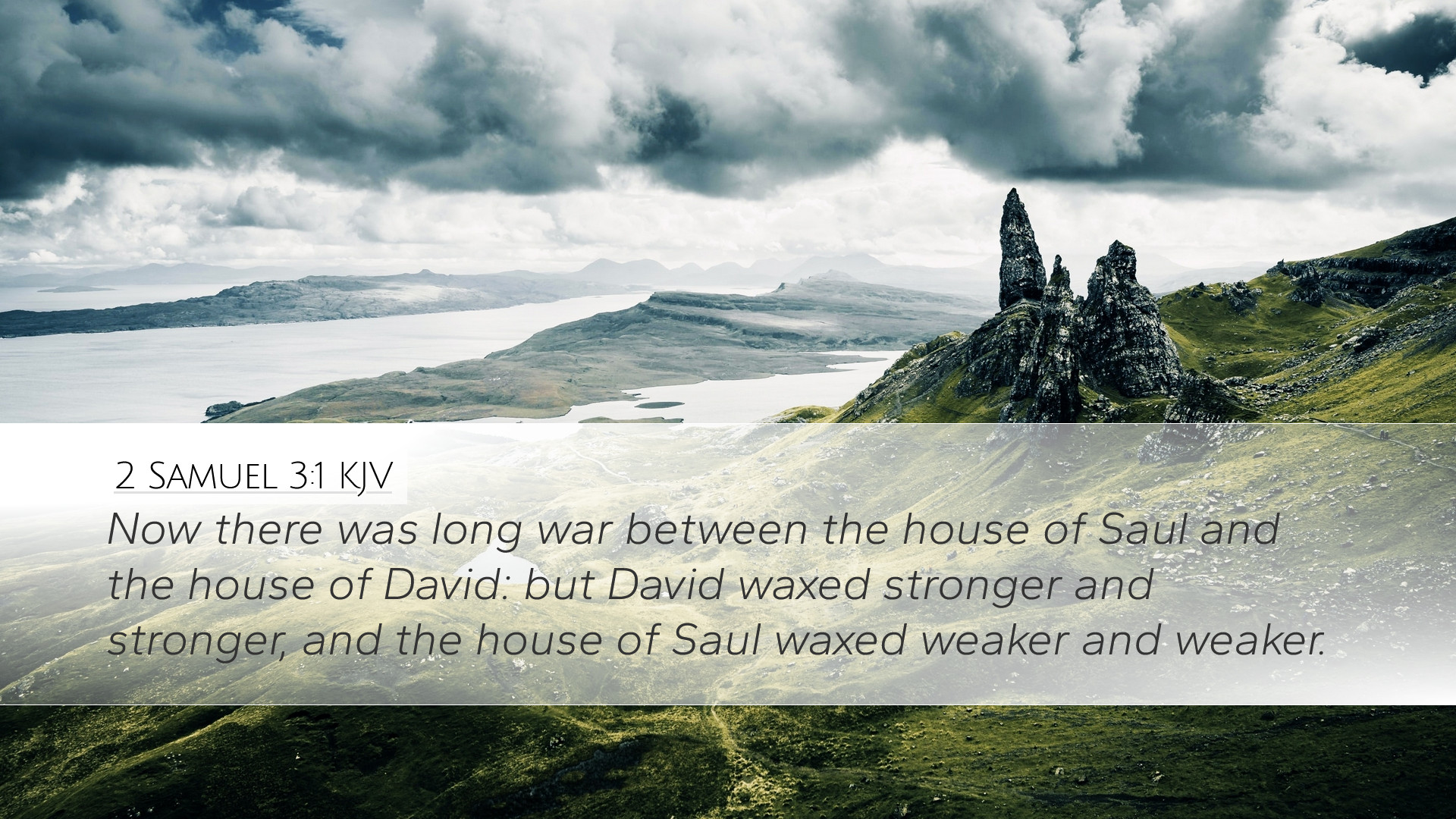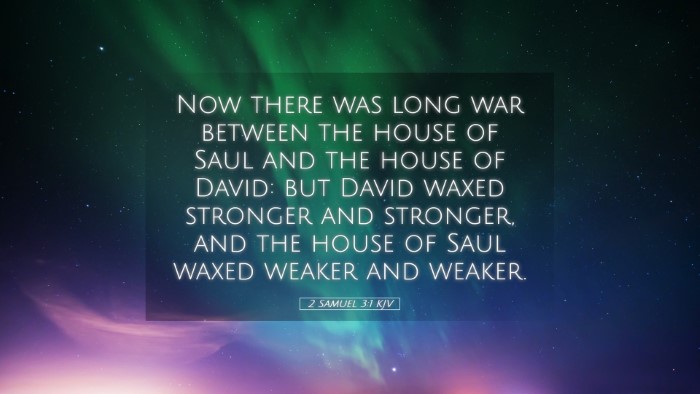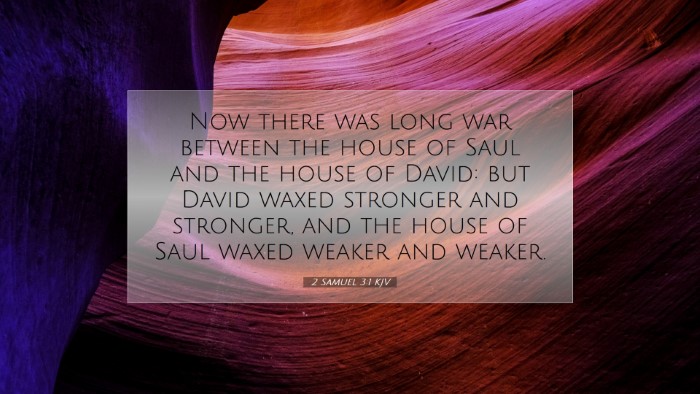Commentary on 2 Samuel 3:1
Verse: 2 Samuel 3:1 - "Now there was long war between the house of Saul and the house of David: but David waxed stronger and stronger, and the house of Saul waxed weaker and weaker."
Introduction
The narrative of 2 Samuel presents a critical phase in the Israelite monarchy, marked by the conflict between the house of Saul and the house of David. This verse encapsulates the overarching theme of the struggle for power and the divine sovereignty in the establishment of David's reign over Israel. The implications of this conflict extend beyond historical record, offering profound theological insights into the nature of leadership, God's providence, and the unfolding of His covenant promises.
Overview of the Conflict
This verse highlights a prolonged contest for supremacy. Matthew Henry notes that this conflict represents more than just political rivalry; it symbolizes the spiritual division within Israel, with Saul representing a kingship that was ultimately rejected by God. In contrast, David’s ascent is reflective of divine favor, reminding scholars of God’s purposes being fulfilled through human history despite hardships and struggles.
Historical Context
As Adam Clarke elaborates, the war between Saul’s lineage and David's emerging kingdom is set against a backdrop of tribal allegiance and national identity. David was anointed king, yet he faced fierce resistance from those loyal to Saul, resulting in a prolonged civil war that had significant implications for the nation of Israel.
The Divine Sovereignty and Human Action
The dynamics of power depicted in this verse also illustrate the tension between divine sovereignty and human will. Albert Barnes emphasizes this theme by pointing out that while human efforts may influence events, it is ultimately God who determines the course of history. Saul’s weakening grip on power amidst David’s growing strength serves as a reminder of the futility of opposing God's chosen plans.
Spiritual Implications
This passage offers rich spiritual insights. The phrase "David waxed stronger and stronger" suggests the cultivation of strength through reliance on God’s anointing and the support of his followers. Pastors may draw from this to encourage believers in the significance of perseverance and reliance on divine strength in the face of adversity.
The Role of Leadership
David's gradual rise is instructive for understanding biblical leadership. Leaders must possess both godly character and the ability to rally support among their people. Henry remarks that David’s strength was not purely military, but also moral and spiritual, which ultimately won the hearts of the people.
Contrast Between Saul and David
- Saul: His reign was marked by jealousy, pride, and disobedience to God, leading to his decline.
- David: Despite his flaws, David's reliance on God and his willingness to repent positioned him for greatness.
Lessons for Today
This conflict between two dynasties prompts reflection on contemporary issues in leadership and governance within the church and society. The passage serves as a warning against the arrogance of power, illustrating that true strength lies in humility and faithfulness to God’s calling. Moreover, it encourages followers of Christ to support godly leaders who align with divine purposes rather than mere political expediency.
Conclusion
In conclusion, 2 Samuel 3:1 reveals pivotal truths regarding the nature of conflict, the significance of leadership, and the faithful providence of God. As the church and its leaders navigate contemporary challenges, this verse stands as a reminder of the importance of divine endorsement in the quest for authority and influence. For theologians and scholars, it invites a deeper exploration of God's sovereignty in human affairs, underscoring the enduring relevance of biblical narratives in understanding our own spiritual journeys.


